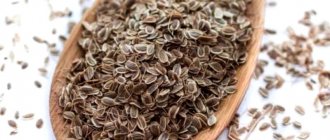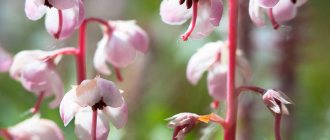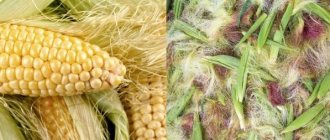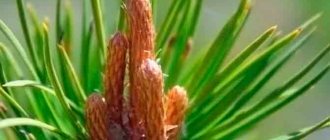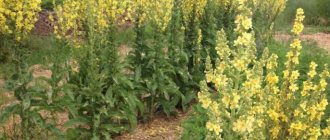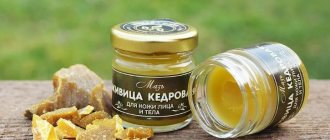One of the most common diseases that affects representatives of the stronger half of humanity is prostatitis, or translated from Latin, inflammation of the prostate gland . Every year the number of cases increases, and the disease affects increasingly younger men (from 20 years old).
In advanced forms of the disease, treatment of prostatitis must be carried out under the supervision of a doctor using medications. In some cases, doctors may recommend that patients resort to traditional medicine, which also promotes recovery.
In the first place in herbal medicine in the treatment of prostate diseases is the most common dill, which was highly valued by our ancestors for its taste and, of course, for the special property of resuscitating the potency of men.
General information about the disease
The prostate gland is located under the bladder, wrapping around its neck. When inflamed, it increases in size. This causes the symptoms that accompany prostatitis:
- frequent difficulty urinating;
- feeling of incomplete emptying;
- pain in the lower abdomen, genitals, anus;
- intimate violations.
The acute form can be accompanied by a rise in temperature up to 39 degrees. The disease is most often provoked by bacteria: Pseudomonas aeruginosa and Escherichia coli, Proteus, Enterococcus, Staphylococcus.
There are factors that increase the risk of developing the disease:
- bowel dysfunction, frequent constipation;
- sedentary work;
- chronic foci of infection in the body;
- one-time or regular hypothermia;
- lifestyle leading to immunosuppression;
- diseases of the genitourinary system of an infectious nature, including sexually transmitted diseases;
- lack of full-fledged sex or its excess.
The decisive impetus for the occurrence of prostatitis is congestion in the gland. Bad habits also contribute to this: alcoholism, smoking. The chronic form usually occurs independently, often against the background of an STD. A rise in temperature is observed only during the period of relapse; other symptoms are almost the same as in the acute form. Constant discomfort and problems in intimate life greatly affect a man’s mental health: he becomes nervous and irritable. In severe cases, treatment of chronic prostatitis should include sedatives and antidepressants.
The disease can lead to impotence, infertility, kidney and bladder diseases. This can be avoided if treatment is started in a timely manner and completed.
Therapy must be comprehensive. For infectious prostatitis, antibacterial medications are indicated. Non-steroidal anti-inflammatory drugs help relieve pain.
For prostatitis, especially chronic prostatitis, a course of physiotherapy is necessary:
- laser therapy;
- electrophoresis;
- magnetic therapy;
- ultrasound.
You should completely avoid beer and drink strong alcoholic drinks as rarely as possible. You should quit smoking or at least reduce the number of cigarettes.
Good results are obtained by special gymnastics to stimulate blood circulation in the pelvis. There are many positive reviews from patients about traditional medicine.
Description of the properties and composition of dill
Dill preparations have a diuretic, antispasmodic, analgesic, and antiseptic effect. This is due to the content of the following useful substances in its seeds:
- essential oils;
- vitamins of group B, C, P, PP;
- flavonoids;
- calcium;
- phosphorus;
- potassium;
- iron;
- coumarins;
- vegetable protein;
- phytoncides.
Remedies from this plant in the treatment of prostatitis calm the nervous system and relieve inflammation. Thanks to its bactericidal effect, dill prevents the development of microbes in the body and removes toxins. Fresh greens expand and make the walls of blood vessels elastic. This ensures adequate blood flow to the pelvic organs, which restores potency and promotes healing of the prostate gland. Also, when consuming dill, the nervous system is strengthened and muscle tone is normalized.
Is dill useful in the treatment of prostatitis?
The main symptoms of prostate disease:
- Sexual desire decreases.
- There is pain when urinating and defecating.
- Discomfort during sexual intercourse.
- Stress and lack of sleep.
- Urinary incontinence.
Consuming the plant at the first signs of prostate disease helps improve the general condition of the body. Prostate tissue becomes inflamed due to the action of bacteria and microorganisms, and systematic use of this herb with food increases potency. The seeds of the plant normalize the flow of urine and reduce stress, have a bactericidal effect on pathogenic microorganisms, and relieve pain.
Medicinal use
The beneficial effect of dill on the body is used in medicine. Remedies from it are recommended for the following disorders:
- Respiratory tract diseases – bronchitis, tracheitis. The plant thins mucus and promotes its removal.
- Disturbances in the functioning of the gastrointestinal tract. Dill helps relieve gases, fights pathogenic bacteria and restores normal intestinal microflora.
- Increased nervous excitability, sleep problems. The herb has a sedative effect, which has a beneficial effect on the central nervous system. It also relieves spasms and relieves pain.
- Impaired outflow of bile. Dill normalizes its secretion and improves its discharge.
- Pathologies of the genitourinary system. The diuretic effect accelerates the elimination of toxins, and the bactericidal effect helps relieve inflammation. Dill is used for prostatitis, adenoma, and cystitis.
- Diseases of the cardiovascular system caused by obstructions in blood flow. Dill lowers blood pressure due to vasodilation. It also normalizes the functioning of the heart muscle, thereby easing the course of ailments such as atherosclerosis and arrhythmia.
You can use both fresh and dried seeds. If you pre-grind them, the absorption of nutrients will improve.
Does dill help with prostate inflammation?
Prostatitis in men requires an integrated approach; treatment with dill can speed up the healing process. The rich chemical composition has an effect in the following directions:
- Normalizes urination. The plant helps solve the problem of frequent night trips to the toilet.
- Due to pain and problems in intimate life, a man is in a state of constant stress. Dill has a calming effect and promotes relaxation.
- Most cases of prostatitis are caused by infection. The antiseptic properties of the plant help cope with bacteria.
- With prostatitis, the patient constantly suffers from spastic pain. The seeds effectively relax muscles, alleviating the condition.
For therapeutic purposes, the plant can be grown independently in the garden or even in a tray on the balcony. Its cheapness and availability ensures the popularity of this folk remedy.
Folk recipes with dill
The simplest method of use is to add fresh herbs to dishes to taste. Dill seeds for prostatitis can be brewed independently or combined with other medicinal herbs. There are special recipes for preparing decoctions that are taken orally, added to baths, and douched with.
Recipe No. 1. Dill seeds must first be crushed in a mortar or coffee grinder. 1 tbsp. l. pour 200 ml of boiling water over the resulting powder and leave for 90 minutes. This liquid should be drunk along with the sediment for a week in the morning on an empty stomach. It is recommended to prepare a fresh portion of the infusion each time; do not stock up on it in advance.
Recipe No. 2. To prepare this decoction you need 3 tsp each of juniper and steelberry, 1 tsp each of the remaining ingredients:
- dill seed;
- Melissa;
- horsetail;
- buckthorn bark.
Pour the collection into 0.5 liters of boiling water, cook and leave. The dose is 100 ml 3 times a day.
Recipe No. 3. For this infusion you need the following components:
- 2 tbsp. l. crushed valerian root;
- 2 cups honey (liquid);
- 1 cup dill seed.
Place valerian and dill in a glass or ceramic container, pour two liters of boiling water. When the liquid has cooled to 30-40 degrees, add honey and mix thoroughly. Leave the mixture for 24 hours in the dark. Take 50 ml before meals.
Recipe No. 4. Place 50 g of pre-crushed seeds in a bottle with a tight lid and pour 500 ml of 50% alcohol. After two weeks of infusion, the drink is taken 1 tsp. before eating. This remedy is especially recommended for chronic prostatitis.
Recipe No. 5. For the next collection you need to take:
- dill seeds – 1 tsp;
- corn silk – 1 tsp;
- hazel – 1 tsp;
- chamomile – 1 tsp;
- calendula – 1 tsp.
Pour boiling water over and leave until cool.
Indirect prostate massage is very useful for prostatitis. You can mix the ground seed with olive oil and use it during manipulation.
For sitz baths, dill infusion should be diluted in sufficient quantities with water and the procedure carried out for 30 minutes. The temperature of the solution should be comfortable so as not to burn the delicate tissues of the genitals and rectum. For douching, the liquid must first be filtered.
Dill is a well-known aphrodisiac that will help during treatment and in the recovery period. It prolongs sexual intercourse and makes sensations brighter.
A decoction of it remains on the walls of the esophagus, which relieves heartburn and exacerbations of chronic stomach diseases. This is an excellent cleanser for the kidneys, liver, and gallbladder. Fresh herbs disinfect the oral cavity and eliminate unpleasant odor. Thanks to this action, digestive and metabolic processes in the body are improved, and the general condition improves.
The use of any of these recipes in practice should be agreed with the attending physician. It is necessary to have accurate information about the absence of a negative reaction to dill or additional components of the products.
We treat adenoma at home and... at the dacha
Is it possible to treat adenoma with herbs? Not only is it possible, but it is also necessary. Especially in combination with other previously proposed methods: hydrotherapy, massage of biologically active points, reflexology, cleansing the body with enemas, switching to proper nutrition and a healthy lifestyle. There are a lot of plants that are used for adenoma. Today we will talk about the most effective and affordable ones.
Continuation. Beginning at AiF. Health" NN , , , , .
Medicinal plants with general strengthening effects
It is recommended to begin herbal medicine for adenoma by preparing a mixture of several plants, infusions of which contain vitamins and have a general strengthening effect on vital organs: liver, kidneys, gastrointestinal tract and nervous system. Below is a list of these plants:
- with a high content of vitamins: rose hips, black currants (dried berries or leaves), mountain ash (contraindicated for gastric ulcers);
- beneficial effects on the gastrointestinal tract: mint, St. John's wort, eucalyptus, calendula;
- beneficial effects on the liver: St. John's wort, immortelle flowers, corn silk;
- beneficial effects on the kidneys: birch buds, horsetail, strawberry leaves, lingonberry leaves, bearberry;
- calming the nervous system: peppermint, lemon balm, hop cones.
From each group you need to take 1 tbsp. spoon of at least one of the listed plants that you have or that you like best, prepare a mixture and store this mixture in a glass jar or paper bag. If necessary, 2 tbsp. spoons of the mixture pour 0.5 liters of boiling water, keep in a thermos or in a wrapped container for 1-2 hours, strain and drink with honey or lemon juice before meals, 1/3 cup 3-4 times a day.
Medicinal plants with anti-tumor effect
Horse chestnut (peel). Pour 25 g of crushed horse chestnut peel into 250 ml of alcohol. Leave for 2 weeks, shaking occasionally; strain. Take 10 drops 2 times a day before lunch and dinner for 20 days of each month or for 30 days with an interval of 2-3 months.
Aspen. Infusion or decoction of bark, preferably from young branches, prepared in water in a ratio of 1:10, drink 1/4 cup 3 times a day before meals. It is very effective not only for significant adenoma, but even for prostate cancer.
Hazelnut (hazelnut). 1 tbsp. Pour 1 cup of boiling water over a spoonful of crushed bark or leaves and cook for 10-20 minutes. in a water bath, drink 1-2 tbsp. spoons several times a day.
Calendula (marigold) delays the development of cancer and has an anti-inflammatory effect. Pour 2 teaspoons of dried flowers into 2 cups of boiling water (daily dose), boil for several minutes, leave for 1 hour. Drink 2-3 tbsp. spoons 3 times a day before meals.
Rose hip. A decoction of the fruit helps not only with prostate adenoma, but also with malignant tumors of any location. Pour 20 g of crushed fruits into a glass of boiling water, boil for 10 minutes. in a sealed container, leave for 24 hours at room temperature, strain and drink 0.5 cups 3 times a day before meals.
Clover contains organic acids such as succinic acid, found in beets, and also has an antitumor effect and activates metabolism. Pour 50-100 g of fresh clover flowers into 0.5 liters of boiling water, leave for 6-8 hours, drink 0.5 cups 3 times a day. You can pour 1 teaspoon of dried clover flowers with 1 glass of boiling water and drink 1-2 tbsp. spoons 3 times a day. You can take clover in the form of an alcohol infusion: 40 g of flowers are infused for 10 days in 0.5 liters of 40-proof alcohol or vodka, filtered and taken 20 ml 2 times a day - before lunch and before bed. The course of treatment is 3 months with a break of 10 days. After 6 months the course can be repeated.
Oats (infusion). Wash the oats, dry them and grind them. 2 tbsp. Place tablespoons of ground oats in a thermos, pour 0.5 liters of boiling water, leave for 3-4 hours, strain, drink 0.5 cups 3-4 times a day before meals.
Infuse black poplar buds in vodka for 2 weeks in a ratio of 1:10. Take 20-30 drops 3 times a day with meals.
Fir oil. Used in the form of baths, microenemas and tampons:
- baths with fir oil at a temperature of 42°C. Add 3-5 g of oil to the bath. Take a bath for 15-30 minutes. depending on your health condition. 10-15 baths per course;
- microenemas with fir oil. Add 5 drops of fir oil to 50 ml of water or aqueous infusion of chamomile, stir the oil thoroughly (preferably with a mixer). The mixture is injected into the rectum after bowel movements or after cleansing the intestines with an enema. If there are no unpleasant sensations, every 2-3 days increase the amount of fir oil by 1 drop and reach 10-12 drops. The course of treatment is 25-30 days. Repeat after 2-3 months;
- rectal tampons with fir oil. Carefully mix equal amounts of fir and sea buckthorn or fir and sunflower oils, moisten a piece of cotton wool or bandage in the mixture, squeeze it out and inject it into the rectum. Leave it there until the next bowel movement. Course of 25 procedures.
Medicinal plants for cleansing the prostate
Licorice (decoction). 1 tbsp. pour a spoonful of crushed root into 0.5 liters of boiling water, cook for 10 minutes, cool, strain. Take 1 glass 3 times a day before meals. For 1 course there are 3 cycles of 3 weeks at monthly intervals. You can’t take it for a long time without breaks!
Burdock (root or leaves). Root decoction: 1 tbsp. pour a spoonful of crushed root into 0.5 liters of water, boil for 10 minutes, cool, strain, take 1 glass 4 times a day, before meals. Infusion of leaves: 1 tbsp. Pour boiling water over a spoonful of crushed leaves, leave for 30 minutes, strain and drink a glass before eating.
Medicinal plants with anti-inflammatory effect
Knotweed. 20 g of dry crushed herbs (fruits, stems, roots) pour 200 ml of boiling water, boil in a water bath for 5-10 minutes, leave for 10-15 minutes, cool, strain, take 1 tbsp. spoon 3-4 times a day. You can pour 20 g of herb into 0.5 liters of boiling water and boil for 10 minutes. and drink 0.5 glasses 3-4 times a day.
Walnut (internal partitions). Fill a half-liter jar with partitions 3/4 full, fill with vodka to the top, leave in a dark place for 2 weeks, take a teaspoon on an empty stomach in the morning and evening until the end of the infusion. You can fill the partitions with 70% alcohol, leave for 7 days and take a dessert spoon once a day for 30 days.
Birch (buds or young sticky leaves). Decoction: 2 teaspoons of dry buds or 4 teaspoons of dry leaves, pour two glasses of boiling water (dose for 1 day), boil in a water bath for 15 minutes, strain, drink 2/3 glasses 3-4 times a day, adding baking soda on the tip of a knife. The decoction cleanses the body of toxins, protects the kidneys from inflammation, and also helps with allergies.
An infusion is prepared from young sticky leaves in a ratio of 1:10. Pour 20 g of leaves into a glass of boiling water, cool, add baking soda on the tip of a knife, stir and leave for 6 hours, strain and drink in 2 doses of 1/2 glass at an interval of 4 hours.
Horsetail. 1 tbsp. pour a spoonful of chopped horsetail into 1 cup of boiling water, leave for 20 minutes, drink 0.5 cups after meals 2 times a day. Brewed as tea, horsetail cleanses the body well and is a strong diuretic (diuretic). Horsetail does not give side effects and does not have toxic properties, but in acute nephritis, unlike chronic nephritis, for which it is widely used, according to some authors, it can cause irritation of the kidneys, so in these cases it is better to refrain from using it.
Common juniper. Contraindicated in acute inflammatory kidney diseases. 2 teaspoons of crushed fruits (ripe, black berries), along with the leaves, pour 1 glass of cold boiled water, leave for 3 hours, drink throughout the day.
St. John's wort. Infusion: 3 tbsp. spoons of crushed flowers and stems pour 250 ml of boiling water, leave for 2 hours in a thermos, drink 1/3 cup 3 times a day.
Clover, calendula, rose hips, aspen, and hazelnut also have an anti-inflammatory effect. See above for the method of preparation and use.
Medicinal plants acting on the urinary (kidney) and urinary organs
Oats in husks (unpeeled) with a decoction of calendula flowers. A very effective remedy. Fill a 1-1.5-liter enamel bowl halfway with oats, add water to the top, cook for 30 minutes. over medium heat, pour in a glass of decoction of calendula flowers, wrap in a blanket, leave overnight, strain, drink warm up to 1-1.5 liters per day instead of water for 2 weeks.
Birch buds (vodka infusion): pour 50 g of buds into 0.5 liters of vodka, leave for 10 days. Drink 1 teaspoon with water, 3 times a day for 15-20 minutes. before meals. You can also take a decoction of birch buds or leaves mentioned above, but their effect in this case will be weaker than that of the infusion.
Medicinal plants effective for painful urination and blood in the urine
Bearberry, or bear's ear. Water infusion: 1 tbsp. Pour a spoonful of crushed leaves into a glass of boiling water. Leave for 12-14 hours at room temperature in a tightly sealed container or 6-8 hours in a thermos. Then heat to a boil, 5 minutes. keep on very low heat, maintaining a slight boil, cool, strain, take 1-2 tbsp. spoons 3-4 times a day for 4 days.
It should be borne in mind that bearberry cannot be boiled for a long time; with prolonged boiling, a large amount of tannins is extracted, irritating the mucous membrane of the gastrointestinal tract.
Bearberry should not be consumed for a long time. It is effective only for alkaline urine, so it is recommended to take it along with a small amount of baking soda.
Peeled oats (decoction) mixed with parsley (root juice) or shepherd's purse (decoction). 2 tbsp. spoons of peeled oats pour 0.7 liters of water, cook until the grains are completely swollen, cool, strain. Add 50 g of parsley root juice or 100 g of shepherd's purse herb decoction. To prepare a decoction of shepherd's purse: 1 tbsp. pour a spoonful of herbs into 250 ml of water, boil for 10 minutes, cool, strain.
Dill in any form. The seeds can be eaten in their pure form, a teaspoon before meals, with 1/4 glass of warm water, but it is better to grind the dill seeds in a coffee grinder. Add 200 ml of boiling water to 1 teaspoon of dill flour, leave for 1-1.5 hours, drink along with the sediment once a day in the morning on an empty stomach for 7 days.
Medicinal plants effective for difficulty urinating
Dandelion. Root decoction: 1 teaspoon of crushed roots is brewed like tea with a glass of boiling water, left for 20 minutes, cooled, filtered and drunk 1/4 cup per 30 minutes. before meals. For a stronger effect: pour 1 teaspoon of crushed roots with a glass of boiling water, boil for 10 minutes, leave for 30 minutes. or instead of boiling, keep overnight in a thermos, filter and take 1 tbsp. spoon 3 times a day before meals for 2-3 months.
Lingonberries in any form: berries, lingonberry water, lingonberry leaves. 1 tbsp. pour a spoonful of crushed leaves into a glass of water, boil for 5-10 minutes, take 1 tbsp. spoon 3-4 times a day. Lingonberries also have an anti-inflammatory effect.
Dill seeds in the form of an infusion (infuse for 2-3 hours in boiling water) in a ratio of 1:20, in addition to the diuretic effect indicated above, have a strong anti-inflammatory and antispastic effect.
Chamomile is one of the most effective anti-inflammatory herbs. It is used internally as an infusion. 1 tbsp. Brew a spoonful of flowers with a glass of boiling water, leave for 2-3 hours, drink 0.5 cups 3 times a day. You can make a cold extract: pour 10 teaspoons of flowers into 2 glasses of cold boiled water, leave for 8 hours, drink within 2 days. Chamomile can be taken for a long time.
For chronic prostatitis, chamomile is used in the form of microenemas. 1 tbsp. pour a spoonful of chamomile flowers into 150 ml of boiling water, leave for 1-2 hours in a tightly sealed container, cool to 40°C and insert into the rectum before bed. A total of 10-12 microenemas per course daily.
From the above list of medicinal plants, it is recommended to select several recipes for yourself, taking into account your condition, symptoms, individual characteristics and taste, and take 2-3 types of plants for 3-4 weeks, then switch to another group, followed by a third; return to the first group of plants again, and so on in a circle.
To be continued.
Contraindications
Contraindications to the use of dill products are the presence of hypersensitivity to it and low blood pressure. Excessive consumption of the plant can cause intestinal disorders, weakness, and drowsiness. To alleviate the condition in case of an overdose, you need to drink a lot of water and take sorbent - “Smecta”, “Activated carbon”, “Enterosgel”.
Dill seeds are an effective addition to the complex of therapeutic measures for prostatitis. Regular consumption of fresh herbs will strengthen the immune system and improve blood circulation. Proper use of folk remedies helps to quickly cope with the disease.
Indications and contraindications for use
Indications for use are reduced immunity and symptoms inherent in prostatitis.
There are no special contraindications for use. However, despite the existing properties, the plant should be taken carefully, not exceeding the indicated dose, especially for hypotensive patients and allergy sufferers.
Too much consumption can lead to overdose with the following symptoms:
- Prostration.
- Drowsiness.
- Intestinal disorder.
Consultation with a therapist is required before starting treatment.
